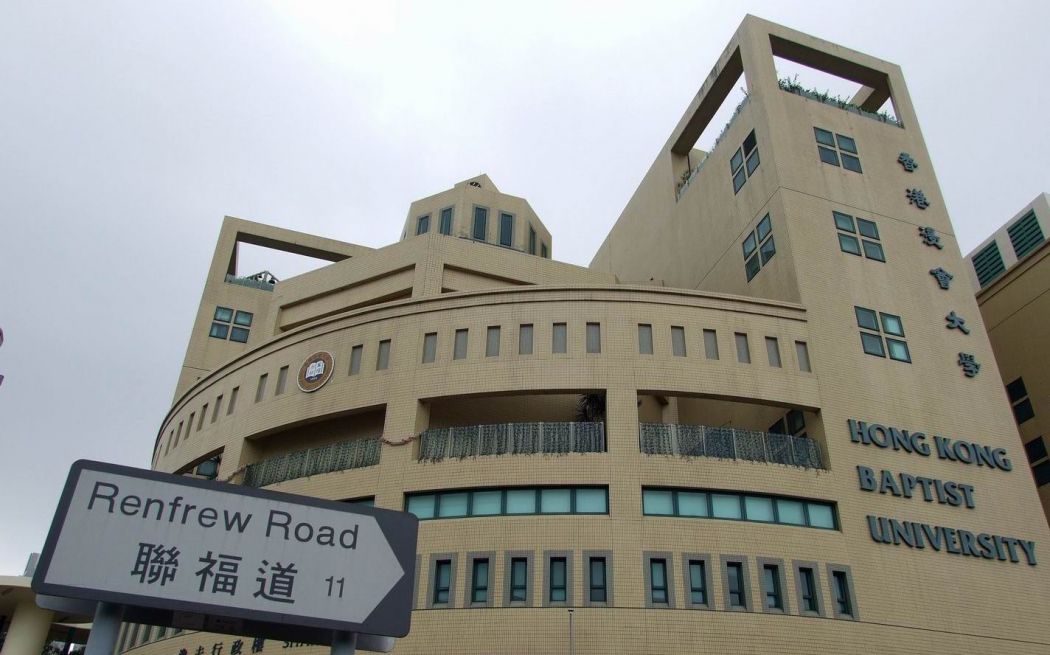A Baptist University (HKBU) governing council member has criticised the school after it excluded staff representatives from two briefing sessions on university governance.
Dr Roger Wong Hoi-fung, an assistant professor of biology, said that all internal council members of the university were excluded from two “induction” sessions on university governance organised by the University Grants Committee (UGC) held on January 17 and 19.
As a result, 16 of the 34 HKBU members had no knowledge of the briefing sessions. Wong told HKFP that he only learned of them after Dr Cheung Kie-chung, a University of Hong Kong (HKU) council member, asked him why he did not attend.

Wong said he discovered that many university councils, including those of HKU, Polytechnic University and City University, invited all their members to the session.
Wong, an elected council member, then asked the HKBU council secretary for the reason. The secretary told him that the UGC instructed them to invite council members as “appropriate.” Staff representatives were not invited as they already knew about university governance, Wong was told.
But Wong, an elected member of the chief executive election committee, said that under a suggestion in the governance report by Sir Howard Newby in 2015, the induction sessions should be for all members.
“Induction should be undertaken by both the UGC, with regard to sector-wide issues, and by each institution in respect of individual institutions, so that the Council Members may discharge their duties in a more informed manner,” the report read.

Wong said the internal members should have been notified.
“If they had invited all of us, it would be our freedom to choose whether to go or not,” he told HKFP.
Wong said the end result was that most council members in attendance were lay members appointed by Chief Executive Leung Chun-ying. He then wrote to Dr Richard Armour, secretary-general of the UGC, to raise his concerns.
‘Red flag’
“I don’t accept communication mishap as an excuse,” he wrote. “From my perspective, not following Newby’s recommendation and discriminating [against] internal members on the invitation list pose a red flag.”
“By being not invited, internal council members and I were deprived of the education opportunity and exchange of ideas with other council members of other universities.”
“Last but not least, I am being discriminated and disrespected while representing 2000 staff, I demand a public apology to the 2000 staff behind me and those internal council members.”

Wong also told HKFP that members of the Legislative Council have already criticised the Newby report for not addressing the issue of the chief executive’s power to directly appoint council members, which is seen by some as a way to hand out political rewards. With this recent incident, the university further eroded public confidence in its ability to implement the six suggestions made in the report, Wong said.
“We were told that the public should engage in university issues because they involve taxpayers’ money – but internal council members have the right to participate as well,” he said. “This is unacceptable. We need to know who is responsible.”
He added that even council members who have served for a long time may not be very knowledgeable in university governance: “We want to be educated too.”
Wong was previously an assistant professor at HKU. He exposed a case of falsified research data which was confirmed, but no one was held responsible.
He and several other whistleblowers faced acts of retaliation, including termination of employment, being barred from the laboratories, and being accused of stealing computers and data. He chose to leave HKU and move to HKBU.
In response, the UGC told HKFP that its invitations to universities included all council members.
